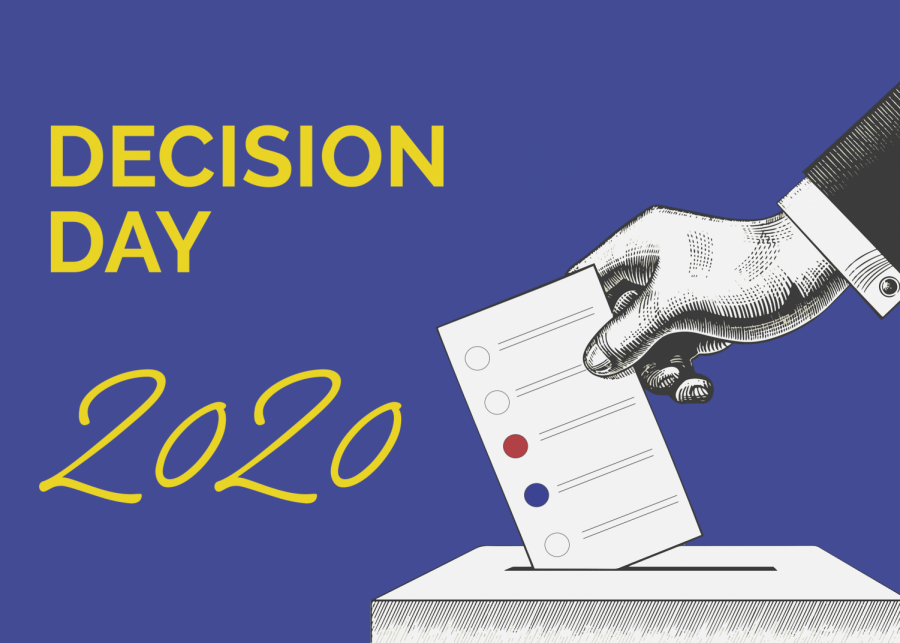On Tuesday, Oct. 3, the House of Representatives made history. For the first time on record, the members of the House voted to unseat the speaker of the house. Former speaker Kevin McCarthy was removed from his position after a 216-210 vote, spearheaded by far-right members of his party. “I’ll look at that,” McCarthy told reporters at The Hill about whether he wanted to remain in Congress.
Hold On. Let’s Rewind.
The speaker of the House, officially known as the speaker of the United States House of Representatives, is the presiding officer, or leader, of the lower house of Congress. They are responsible for monitoring the floor by permitting members to speak, counting and declaring the votes, appointing members to committees, signing resolutions, and more. Contrary to popular belief, the speaker does not need to be in the majority party or even a House member to be in power. They simply need to be voted in by the majority of the delegates.
The start of McCarthy’s story as the speaker goes back to Jan. of 2023. The results of the Congressional elections came in Nov. 2022, and the Republicans took control as the majority party. A multitude of names were put up for speakership, and the two top contenders were McCarthy and Hakeem Jeffries, a Democrat from New York who currently serves as the minority party leader. McCarthy was voted into the seat after 15 ballots, ranging five days, the longest it has ever taken a speaker to be elected. The last instance of a speaker taking more than one ballot to win the seat was in 1923 when seven ballots were taken and the House was much smaller.
To win his party’s vote, McCarthy reportedly had to concede a couple of items. First, some members of his party who abstained or voted against him belonged to the Freedom Caucus, an extreme right-leaning group, and they were given certain positions to appease them into voting for him. He made it easier for tax increases and spending to be blocked. Republicans became able to have one person propose a vote to get him out of the seat, which wasn’t possible before. McCarthy claims that his predecessor Nancy Pelosi said she would “always back him up” regarding his speakership. But when the time came for her to support him, she did the opposite. He now suggests that she lied when she said she would back him up.
McCarthy belongs to the Republican party and throughout his career, his political beliefs have mostly aligned with many of those in his party. He has openly supported the Hyde Amendment, which bans federal funding for abortion except in specific circumstances; voted against Resolution 908, which condemns racism against Asian Americans during the Covid-19 Pandemic; been a major opponent of former President Obama’s Clean Power Plan; and consistently followed his party’s viewpoints on many other issues. One would naturally assume that because he has aligned with their beliefs and has been serving for so long that he would be the obvious choice for speakership and remaining in power, but that didn’t prove to be the case.
So What Happened?
Even though McCarthy has been known as a right-wing politician, as the speaker, some of the policies he supported or put through were more bipartisan. The biggest one that recently drew attention from far-right members of his party was one involved in the government shutdown he avoided by supporting the stopgap-funding bill.
Government shutdowns happen when Congress fails to enact the 12 appropriation bills or continue the resolution, which they did before the end of the fiscal year on Sept. 30. If the government shuts down, all non-essential jobs will be shut down until new spending legislation is approved.
Experts look towards past government shutdowns to try to estimate the repercussions if a shutdown occurs this year. During the 2013 and 2018 government shutdowns, the FDA wasn’t able to administer inspections, national parks had to close (they remained open during the 2018 shutdown with no visitor services, air traffic controllers/TSA agents didn’t get paid), the NIH (National Institutes of Health) was prevented from taking new patients — and these were just some of the agencies affected.
Government and U.S. history teacher Kathryn Taylor believes that knowing about current affairs and how the government works is vital to everyone. “Everything Congress does pertains to us, it affects us in some way; especially here in the Northern Virginia area and the DC metro area, because there are so many individuals who work for the federal government, or are contractors with the federal government,” Taylor said. “So if the government shuts down and does not pass a spending bill, then some individuals will not be paid.”
The repercussions of a shutdown aren’t just domestic. Countries that rely on the United States for resources would be unable to receive them. For example, Ukraine would be unable to get extra aid, and Gaza wouldn’t be able to receive more than what President Joe Biden has already given — which wouldn’t be able to happen without a speaker regardless, because Congress has to authorize all aid the United States gives to other nations.
The bill that led to the 45-day continuance was passed because McCarthy went to the Democrats for votes instead of the Republicans — specifically the Freedom Caucus. He tried to help the Republicans and make deals, but with time running out, there simply wasn’t enough time for him to appeal to their every request. He sided with the Democrats to pass the bill and keep countless programs and jobs running for citizens.
One Republican in particular took offense to his actions. The representative from Florida, Matt Gaetz, claimed McCarthy “turned his back and was making secret deals” against his party. For Gaetz and McCarthy, this incident just added fuel to the fire in their journey. Gaetz was one of the original members of those who opposed him during the initial speakership votes in Jan. Gaetz has long believed that any relation with the Democratic party in the House was a violation of the agreement they made when McCarthy was being elected into the seat.
In May, McCarthy worked with Democrats to raise the debt ceiling, and Gaetz saw that as a sign that McCarthy was working against their party. Evidently, this final bill was the final straw for Gaetz. On Monday, Oct. 2, Gaetz introduced a motion to vacate, which would unseat McCarthy as speaker, and he had the power to do so because of the concessions originally made in January.
On Tuesday, Oct. 3, the motion passed and McCarthy was removed from the speaker position.
What Comes Next?
McCarthy has announced that he will not be running again for the position. This leaves the house with an issue they have never faced before: how to elect a new speaker in the middle of the term and pass either a continuance or the appropriation bills before Nov. 17. A few GOP members have announced their intention to run. Steve Scalise from La., Jim Jordan of Ohio (endorsed by former President Donald Trump), and Kevin Hern of Okla. are all front runners from their party.
Why Does Any Of This Matter?
In the coming weeks, the new speaker will be elected, bills and resolutions will be brought to the floor involving many committees. The House of Representatives will be making decisions that will impact all citizens.. On Wednesday, Oct. 18, a ballot was conducted with Jefferies leading that poll, after two votes, 212-199. Jefferies and Jordan were the two leading candidates, since Scalise dropped out of the race. 218 votes are normally needed to win the position; in this election, however, only 217 votes are required. This is because two representatives, David Cicilline (R.I.) and Chris Stewart (Utah), resigned, which decreased the vote count needed to win by one.
On Thursday, Oct. 19, Jordan paused his bid for speakership and instead was planning to support a plan to give temporary speaker Patrick T. McHenry more power. This is a difficult situation for Congress to maneuver, since there is no precedent to follow. Right now, McHenry has been presiding over the elections on the floor. Some congressional scholars argue that the bounds of power for the interim speaker is determined by what the majority of the members agree upon. However, shortly after Jordan announced this, he reversed his decision. He will be calling for a third vote for speakership. This decision came after a negative response from his fellow Republicans who claimed backing McHenry would concede control to the democrats. “We made the pitch to members on the resolution as the way to lower the temperature and get back to work,” Jordan said to The New York Times. “We decided that wasn’t where were going to go. I’m still running for speaker. I plan to go to the floor and get the votes and win this race.” The next vote has yet to be scheduled.
Many people think the inner workings of politics don’t affect them personally, but the policies these leaders make trickle down to all citizens. “I am aware of people my age who do not follow the news at all, do not know what is going on in current events, but they vote in every election,” Taylor said. “It is essential to be informed to understand what is going on in government, throughout the world as well to make informed decisions on who you are voting for and if they are reflecting your values and interests.”
To get updates on this ongoing situation, there are countless news sources to look into. The New York Times, The Washington Post, and The Wall Street Journal all have live coverage and in depth stories that are updated as new information is available.


















![With the energy and effort the Bolts were bringing to the game, the Phoenix had to step up and match them to make it through their first game of the season. Many of the girls on the team, including freshman Nazly Rostom, have been playing soccer since their childhood and have grown a love for the sport as a result. “It was fun to see how we actually played in a [real] game,” Rostom said. “Even though the outcome was not what we were hoping for, I’m still happy we got to play together.”](https://theblazerrhs.com/wp-content/uploads/2024/04/DSC_0154-1200x800.jpg)


![Held up by a group of cheerleaders, flyer sophomore Leyu Yonas poses as part of a stunt, also supported by flyer junior Shayne Mitchell behind her. (Left) Prior to the pink out football game on Oct. 13, the athletes practiced in the aux gym from 5 p.m. to 6:30 p.m. (Right) On Oct. 19, the cheerleaders competed in their District Championships at Woodgrove High School. “We definitely put all our effort on the mat [at Districts], and it showed,” Mitchell said. Left: Photo by Nadia Shirr. Right: Photo by Steve Prakope via Victor O’Neill Studios.](https://theblazerrhs.com/wp-content/uploads/2023/11/feature-image-1200x823.png)
![Sophomore Xavier Smith (6), the Phoenix quarterback, runs the ball as his teammates help hold up the defense. “My [offensive] line collapses, so I just [have to run], and its a good way to get first downs because [Tuscarora’s] defense was really good,” Smith said.](https://theblazerrhs.com/wp-content/uploads/2023/11/IMG_5383-1200x897.jpg)



![As the referee throws the ball up for the tip-off, freshman Simone Diby leaps towards the ball to get it in Phoenix possession. Diby is a new member of the Phoenix girls basketball team, and despite it being a change, she finds it enjoyable. “It’s definitely a different experience if you’ve never played on a team, [but] I think it’s still fun.”](https://theblazerrhs.com/wp-content/uploads/2024/03/DSC_0057-1200x662.jpg)

























